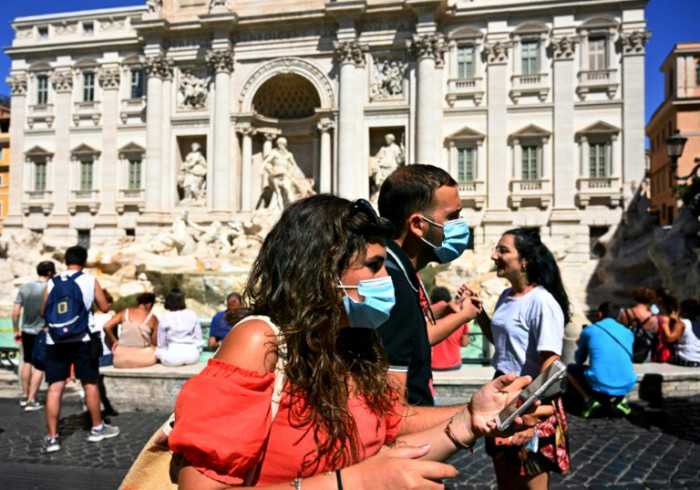
Worrying spikes in cases reported Thursday in France, Italy, Spain and Germany showed the pandemic was rebounding across the continent — often due to travel, summer holidays and parties.
While Italy registered 845 new cases on Thursday, its highest daily tally since May, France reported 4,700 fresh infections — a massive increase on the previous day. Spain’s daily increases topped even those of France, and Germany was concerned about its own resurgence.
Despite the rise in cases, a top World Health Organization official said additional lockdowns should not be necessary. “With the basic nationwide and additional targeted measures, we are in a much better position to stamp out these localized virus flare-ups,” the head of the WHO’s European branch, Hans Kluge, told reporters.
“We can manage the virus and keep the economy running and an education system in operation,” he added.
The coronavirus pandemic may have driven as many as 100 million people back into extreme poverty, World Bank President David Malpass warned Thursday in an interview with AFP.
The Washington-based development lender previously estimated that 60 million people would fall into extreme poverty, but the new estimate puts the deterioration at 70 to 100 million, and he said “that number could go higher” if the pandemic worsens or drags on, which is possible.
Meanwhile, the death toll from the virus in Latin America surged past 250,000. Nine months after the virus began sweeping across the world from China last December, the pandemic has hit the Americas harder than anywhere else.
Latin America and the Caribbean recorded nearly 6.5 million infections and 250,969 deaths by 2200 GMT Thursday, according to an AFP tally based on official national figures. Globally, the virus has claimed at least 788,242 lives.
Brazil is the region’s worst-affected country with 3.5 million cases and more than 112,000 deaths.
The South American giant is second only to the United States as the world’s worst-hit country.
Peru, where figures released Thursday showed a 30 percent fall in GDP in the second quarter, has registered more than 26,000 deaths.
The crushing economic damage has sprung not just from the virus itself but also from the lockdowns that largely halted business activity across the world.
The United States — where 174,000 people have died — continues to bear the brunt in health terms and is suffering grim economic fallout.
The number of Americans filing claims for joblessness each week topped one million again, US officials said on Thursday, an increase on the previous week’s figures.
Germany will need to take on yet more debt in 2021 to mitigate the impact of the coronavirus on the economy, Finance Minister Olaf Scholz said.
“Next year we will continue to be forced to suspend the debt rule and spend considerable funds to protect the health of citizens and stabilise the economy,” Scholz said in an interview with the Funke media group, referring to Germany’s cherished policy of keeping a balanced budget.
The government has pledged over a trillion euros in aid to shield companies and citizens in Europe’s top economy from the pandemic fallout, including through loans, grants and subsidised shorter-hours programmes.
Worrying trends emerged in India as a new study suggested more than a quarter of Delhi’s 20 million people may have been infected without showing symptoms — backing up several similar studies.
The figures added urgency to the desperate bid to find a vaccine for the virus, which has infected more than 22 million and killed hundreds of thousands since it first emerged in China late last year.
Russia announced on Thursday it was pushing forward with testing on more than 40,000 people of its candidate drug, known as Sputnik V, which has already been hailed by Russian officials as a success even as experts questioned the rigour of the testing regime.
Several drugs are approaching the mass-testing phase, and countries around the world have been pre-ordering many millions of doses.
The EU said on Thursday it had concluded talks with a German pharmaceutical firm to secure 225 million doses of a potential vaccine — the fourth such agreement the bloc has reached.
“This will not solve the problems of the next few weeks, but of the next few months,” he said.
However, while a vaccine remains elusive, governments are left trying to control the spread through social-distancing measures, quarantines, travel bans and restrictions on businesses.

